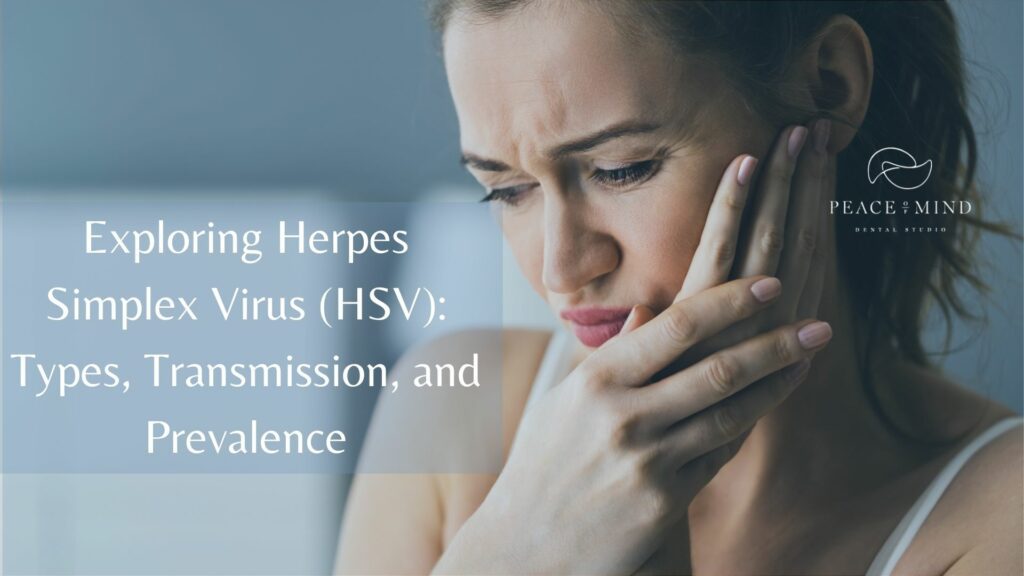
Herpes Simplex Virus is a common virus that affects millions of people worldwide. It causes painful sores around the mouth and the genitals. The virus is divided into two types- HSV-1 and HSV-2. HSV-1 is oral herpes, and HSV-2 is genital herpes. Understanding the types, transmission, and prevalence of HSV virus helps prevent it. However, there is no cure for the problem.
In this blog, we will discuss the Herpes simplex virus and oral HSV infection as it affects a significant population worldwide.
What is Herpes Simplex Virus?
Herpes Simplex Virus is a contagious problem caused by the HSV virus. It is a contagious infection that affects humans for multiple reasons, which are discussed further in the blog. The blisters start appearing around the mouth and genitals and are painful, causing fever. It spreads through contact with the infected area.
Key Differences Between HSV-1 and HSV-2
Herpes Simplex Virus HSV is of two types- HSV-1 and HSV-2, the key differences between which are shared below:
HSV-1: Oral Herpes
This virus mainly affects the oral region, such as the lips and the surrounding area. It results in cold sores and fever blisters on and around the mouth. It is highly contagious and affects kids and adults alike.
HSV-2: Genital Herpes
HSV-2 is responsible for genital herpes. It is transmitted through sexual contact and can lead to painful sores or blisters in the genital and anal areas. While it affects the genital region mostly, it can also affect other parts of the body if it comes in contact with infected lesions. HSV-2 is more common in adults.
The key differences between the two viruses are:
Location of Symptoms
HSV-1 primarily affects the oral area, such as the mouth and lips, while HSV-2 affects genital areas.
Mode of Transmission
HSV-1 is transmitted through oral contact, such as kissing or sharing utensils and toothbrushes, or through oral-genital contact. HSV-2 is mainly transmitted through sexual contact, particularly through genital-to-genital contact or oral-genital contact.
Prevalence
HSV-1 is a highly prevalent virus affecting almost 67% of the population under the age of 50. It affects kids most often. HSV-2 is less common and affects only 11% of people between 15 and 49.
Recurrence
If you have been affected by HSV-1, there is the possibility that the cold sores will reappear. However, they are less frequent than genital herpes outbreaks. Genital herpes often has recurrent outbreaks, varying in frequency and severity from person to person.
Symptom Severity
Oral herpes can be identified through cold sores or fever blisters around the mouth and on lips but are less painful and severe than genital herpes. Genital herpes is more uncomfortable due to its location.
Complications in Newborn
It is rare, but HSV-1 can be transmitted to newborns during childbirth. It can lead to severe complications. If you are pregnant and affected by genital herpes, it is essential to get prompt treatment because it can be life-threatening to newborns if they are affected and not treated promptly.
Prevention and Management
Preventing HSV transmission and managing the infection are essential to control its spread. Here are some key prevention and management strategies:
Safe Sex
Practicing safe sex, such as using condoms and dental dams, can significantly reduce the risk of transmission during sexual activity.
Avoid Contact During Herpes Outbreak
If your partner or anyone else in the family is affected by the virus, refrain from any physical contact with them, such as kissing or sexual intercourse. The affected person himself shouldn’t touch the lesions as it only spreads the virus to other parts of the body.
Antiviral Medications
You must know that herpes has no cure. You can only reduce the discomfort with antiviral medications and reduce the frequent outbreaks.
Education and Awareness
Promoting awareness about HSV is essential because most people don’t recognize the symptoms and do not consult a dentist on time.
Symptoms of HSV or Cold Sores
Herpes is commonly known as cold sores, and its symptoms are very easy to identify. Check out the symptoms of cold sores so you can consult Peace of Mind Dental Studio at the earliest and get the required treatment.
- Sore throat
- Nausea
- Swollen glands
- Dehydration
- Headache
- Fever
- Tingling in and around the mouth
- Small, red blisters around the mouth and on the tongue
- Bad breath
- Mouth ulcers
These are some common symptoms for both kids and adults.
Oral HSV Infection Treatment
If you are looking for HSV treatment, Peace of Mind Dental Studio in Chandler is the place for you. We offer cold sore therapy to stop the progression of cold sores.
A low-power laser is used to kill the virus, which reduces the healing time of herpes and refrains the virus from spreading. It is a quick and safe treatment that reduces the discomfort and stops the frequent outbreaks.
However, one must know that there is no effective treatment for cold sores, and cold sore therapy cannot treat herpes entirely since it cannot treat the root cause.
Visit Peace of Mind Dental Studio in Chandler and learn more about herpes and its treatment.


